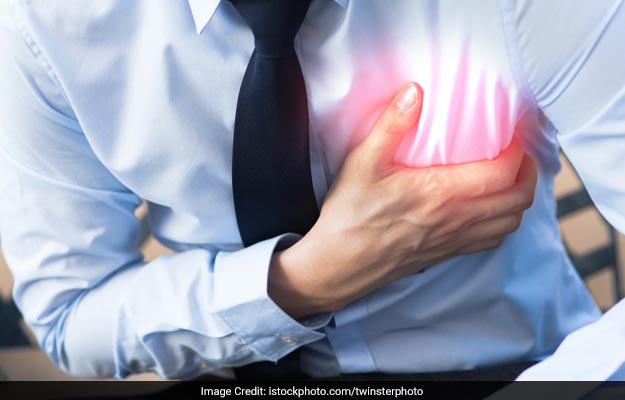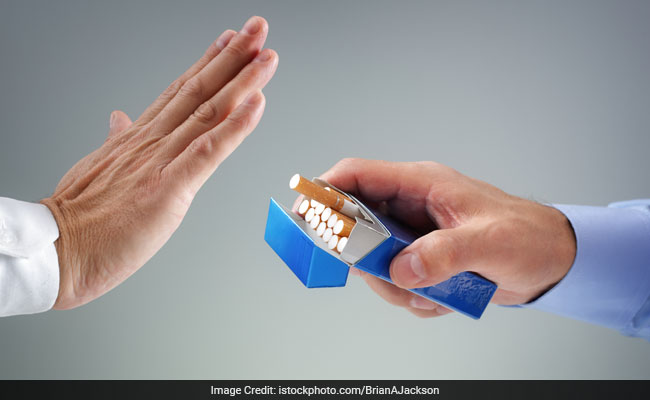
- Heart flutters can occur at any time and can go away after a few seconds
- Stress and anxiety are some of the important causes of heart flutters
- Smoking can increase your risk of irregular heartbeats and heart flutters
Have you ever felt that your heart is pounding at a very quick pace, faster than normal? Do they feel like your heart is skipping a beat or fluttering too hard or too fast? Chances are that you are experiencing heart palpitations or heart flutters. These can be felt in the chest, neck and throat. They sound scary; but thankfully, they are nothing to worry about. Heart flutters can occur at any time and can go away after a few seconds. They can occur when you are sitting, lying, moving or standing still.
The good news about heart flutters is that they do not necessarily indicate a heart condition. Some of these occur when there is too much pressure on your heart like in stress, exercising, dehydration or during an illness. Other causes of heart flutters include:
- Tobacco consumption
- Pregnancy
- Alcohol
- Smoking
- Illegal drugs
- Caffeine intake
- Certain health conditions
- Reaction of medicines
- Panic attacks
- Anemia
 Heart flutters: They do not indicate a serious condition usually
Heart flutters: They do not indicate a serious condition usuallySome simple techniques can help you manage heart flutters at home. Here's a list of 6 helpful tips. Keep reading...
1. Try some relaxation techniques
Strong emotions like stress and anxiety are some of the important causes of heart flutters. These emotions lead to a sudden spike in the adrenaline levels. This is likely to increase your risk of heart flutters. Some management techniques for this include meditation and yoga. Sit cross-legged, and practice deep breathing. Take a deep breath in and let it out through your mouth. Practice this till you feel calm. This should be practiced during the day to keep heart-flutter episodes at bay. Every 1-2 hours, practice deep breathing to keep your general stress levels low.
Also read: Heart Disease: Will I Get It If I Have A Family History? Expert Explains
2. Quit smoking
A recent study showed that cigarette smoking can increase your risk of irregular heartbeats and heart flutters. For this, researchers at the Boston University found that the overall lifetime risk of heart flutters in people above 55 years of age was 37% and was affected by the burden of risk factors. One of these established risk factors was smoking. Researchers said that this can be curbed by checking the short-term risk of heart flutters in people. This can help with the identification of long-term risk. Accordingly you can take up some lifestyle changes for prevention.
 Heart flutters: Smoking increases the risk of heart flutters
Heart flutters: Smoking increases the risk of heart flutters3. Drink more water
Dehydration is strongly linked to heart flutters. When you do not drink enough water, your blood starts to become thicker (because the blood also contains water) and can make it difficult to circulate the blood through veins. The best way to prevent this from happening is by drinking more water. This can increase your pulse and lead to flutters. If you feel that your pulse rate is increasing, reach out for a glass of water. It will prevent the flutters.
4. Restore your electrolyte balance
Electrolytes help in sending electrical signals all over the body. These signals are important for the normal functioning of the heart. Electrolytes include magnesium, sodium, potassium and calcium. Most of them can be obtained from healthy foods like:
- Avocados
- Bananas
- Green leafy vegetables
- Dairy
- Nuts
- Fish
However, you must keep a check on the electrolyte levels in your body. Too many of them can cause some healthy problems. So get a blood test done to see if you are short on electrolytes or not.
 Heart flutters: Eat bananas to maintain electrolyte balance
Heart flutters: Eat bananas to maintain electrolyte balance5. Avoid stimulants
Some substances are likely to increase your risk of heart flutters. To cut down the risk, you need to cut down the consumption of these stimulants. They include:
- Alcohol
- Caffeine
- Tobacco
- Cough and cold medications
- Appetite suppressants
- Blood pressure medication
- Mental illness medications
- Illegal drugs
Keep in mind that your heart flutter triggers are going to be unique. So you need to take note of these triggers and avoid them as much as possible. For this you can try taking the stimulant and see how it affects you. If there are no heart flutters, then perhaps it is safe for consumption and if there are heart flutters, then it indicates that the product is not suitable for you.
Disclaimer: This content including advice provides generic information only. It is in no way a substitute for qualified medical opinion. Always consult a specialist or your own doctor for more information. NDTV does not claim responsibility for this information.
Track Latest News Live on NDTV.com and get news updates from India and around the world

